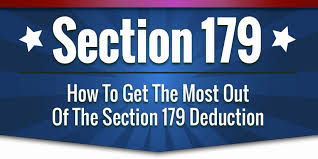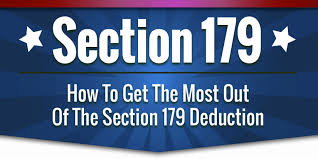Buying Used: The Ultimate Guide to Tax Law 179


When it comes to purchasing a vehicle, many people consider buying a used one as a way to save money. Not only can you find a great deal on a used car, but you may also be able to take advantage of certain tax laws that can help make the purchase even more affordable.
Before you buy that used vehicle you want to make sure you know you are getting a great vehicle. Mike Davenport the owner of Mike's Car Store and Famous Youtuber Chevy Dude explains in the video below how to test drive a vehicle to ensure you are getting a great deal.
One such tax law is Section 179 of the IRS tax code, which allows businesses to deduct the full purchase price of certain qualifying equipment, including vehicles, from their gross income.
Let's start off by letting you know I am not an accountant and you should consult one before making a purchase. The biggest thing most people don't know about the Section 179 tax code is that when you buy a qualifying vehicle it has to be NEW TO YOU. Not NEW.
If you are a business owner or self-employed individual, you may be able to use Section 179 to your advantage when buying a used vehicle. This tax law allows you to write off the full purchase price of a qualifying vehicle in the year it is placed in service, rather than depreciating the cost over a number of years. This can provide a significant tax benefit, especially if you are in a high tax bracket.
To qualify for the Section 179 deduction, the vehicle must be used primarily for business purposes. This means that the vehicle must be used more than 50% of the time for business activities, such as transporting goods or meeting with clients. Additionally, the vehicle must be purchased and placed in service during the tax year for which you are claiming the deduction.
If you are considering buying a used vehicle for your business, it is important to keep track of all relevant documentation, including the purchase price and any financing documents. You will also need to fill out IRS Form 4562 and attach it to your tax return when you file.
While buying a used vehicle can be a smart financial decision, it is important to do your research and make sure you are getting a reliable vehicle that will meet your needs. Be sure to get a thorough inspection and check the vehicle's history before making a purchase.
Overall, buying a used vehicle and taking advantage of tax law 179 can be a great way for businesses to save money and get the transportation they need. Just be sure to do your due diligence and consult with a tax professional if you have any questions about how the tax law applies to your specific situation.